Understanding Homeowners Associations (HOAs) in Arizona: Everything You Need to Know

What is a Homeowners Association (HOA)?
A Homeowners Association (HOA) is a private regulatory organization responsible for managing a neighborhood or community. If you purchase a home in an HOA-governed area, membership is mandatory. This means you'll be subject to the HOA's rules and regulations and required to pay fees that support the association's activities and maintenance responsibilities.
Why Do HOAs Exist?
HOAs are established to uphold the quality and appearance of the neighborhood, thereby protecting property values. Initially created by the subdivision's developer, the HOA is typically managed by the developer and a few elected residents during the early stages of development. As the community matures and construction concludes, control gradually shifts to elected homeowners.
Key Functions and Responsibilities of an HOA
-
Covenants, Conditions, and Restrictions (CC&Rs): The HOA enforces a set of rules known as Covenants, Conditions, and Restrictions (CC&Rs). These rules cover various aspects of community living, including:
- Parking regulations
- Restrictions on outbuildings like sheds
- Pet policies
- Landscaping standards
- Approved exterior paint colors
Violating these rules can lead to fines, ensuring adherence to community standards.
-
Maintenance of Common Areas: Homeowners contribute to the maintenance of shared spaces—such as parks, pools, and clubhouses—through monthly or annual dues. These fees are crucial for keeping common areas clean, safe, and accessible to all residents.
-
Reserve Fund and Special Assessments: An HOA typically maintains a reserve fund, which allocates a portion of dues for long-term repairs and improvements. In cases of emergencies—like storm, fire, or flood damage not covered by insurance—the HOA may impose a special assessment to cover the associated costs.
-
Community Activities and Communication: Beyond regulatory roles, HOAs often organize neighborhood events such as holiday gatherings, food truck festivals, sports tournaments, and more. They also communicate with residents through newsletters that highlight local playgroups, book clubs, and other community-based organizations.
Benefits of Living in an HOA Community
-
Protection of Property Values: HOAs play a vital role in maintaining the aesthetic and structural integrity of the neighborhood. Homes in HOA communities tend to remain well-kept, helping preserve property values. Data consistently shows that homes within HOAs often sell for more than those without HOA governance.
-
Enhanced Community Engagement: HOAs provide a platform for residents to engage in neighborhood governance and activities. By participating in the HOA, homeowners can influence the community’s direction and ensure their voices are heard.
-
Organized and Well-Maintained Neighborhoods: HOAs ensure that common areas and amenities are meticulously maintained, contributing to an organized and visually appealing neighborhood. This dedication fosters a pleasant living environment for all residents.
Real-Life Example: Verrado in Buckeye, AZ
Verrado, a master-planned community in Buckeye, AZ, is a prime example of a successful HOA. The community hosts regular events, such as farmers' markets, holiday celebrations, and outdoor movie nights, fostering strong neighborly connections. The HOA enforces CC&Rs that maintain the community's charm, ensuring homes and landscaping are kept to high standards. This commitment has contributed to Verrado's reputation as a desirable place to live, enhancing property values and creating a vibrant, engaged community.
HOA Fees and Transfer Fees
When a new owner purchases a home in an HOA community, a transfer fee is usually charged. This fee covers the administrative costs related to updating the HOA's records. Regular HOA fees—whether assessed monthly or annually—support the ongoing maintenance and management of the community.
Frequently Asked Questions (FAQs)
-
Can I challenge an HOA decision?
Yes, homeowners can typically appeal decisions made by the HOA through established procedures outlined in the governing documents. Most HOAs have a process for addressing grievances, which may involve submitting a written request for reconsideration or attending a board meeting. -
What happens if I don’t pay my HOA fees?
Failure to pay HOA fees can result in penalties, including late fees and interest charges. The HOA may also place a lien on your property, which could lead to foreclosure if the debt remains unpaid. -
How are HOA fees determined?
HOA fees are typically based on the budget set by the board and may vary depending on the community's size and amenities. Fees cover maintenance of common areas, insurance, and reserve funds for future repairs. -
What types of rules can an HOA enforce?
HOAs can enforce a variety of rules, including those related to property appearance, noise levels, and even landscaping choices. These rules aim to maintain community standards and enhance property values. -
What if I disagree with the HOA rules?
Homeowners can voice their concerns during HOA meetings or through written communication with the board. However, if you purchase a home in an HOA community, you are generally expected to comply with existing rules. -
Are there any benefits to living in an HOA community?
Yes, many residents appreciate the organized community events, maintained common areas, and enforced rules that protect property values. Additionally, HOAs often provide a platform for residents to engage with one another and contribute to community improvement. -
Can the HOA change the rules?
Yes, the HOA can change rules and regulations, but typically this requires a vote from the board or, in some cases, a majority vote from the homeowners. Changes are usually communicated through newsletters or official announcements. -
What should I do if I receive a violation notice?
If you receive a violation notice, review the specifics of the notice and the related CC&Rs. You may have the option to remedy the violation within a certain timeframe. If you believe the notice is incorrect, you can usually appeal it according to the HOA's procedures. -
Do I have a say in HOA decisions?
Yes, as a member of the HOA, you have the right to attend meetings, vote on key issues, and run for a position on the board. Your participation helps shape the community and its regulations. -
How can I get involved in my HOA?
Getting involved in your HOA can be as simple as attending meetings or volunteering for committees. Many HOAs welcome residents to contribute their skills and ideas, enhancing community life.
Conclusion
Understanding the role and benefits of a Homeowners Association is essential for anyone considering buying a home in an HOA-governed community. HOAs provide structure, maintenance, and opportunities for community engagement that help protect property values and enhance the quality of life for residents. By familiarizing yourself with your HOA's rules and actively participating, you can contribute to shaping the direction of your neighborhood and ensuring it remains a desirable place to live.
Categories
- All Blogs (253)
- 13707 W Linanthus Road (3)
- 2223 N BEVERLY Place (5)
- Active Adult & 55 Plus Communities (12)
- Alamar (1)
- Anthem (3)
- Anthem Arizona (3)
- Arizona Relocation Guides (12)
- Avondale (2)
- Bridges at Gilbert (1)
- Buckeye Arizona (15)
- Builders (6)
- Builders in Avondale (1)
- Builders in Buckeye (1)
- Builders in Goodyear (1)
- Builders in Mesa (3)
- Builders in Peoria (2)
- Builders in Queen Creek (3)
- Builders in Scottsdale (3)
- Builders in Surprise (1)
- Buyers (157)
- Cadence (2)
- Cantamia (2)
- Chandler Arizona (6)
- Eastmark (2)
- Estrella (4)
- Financial Planning (36)
- Flagstaff Arizona (2)
- Fulton Ranch (1)
- General Real Estate (97)
- Gilbert Arizona (11)
- Glendale Arizona (7)
- Golf Course Communities (22)
- Goodyear Arizona (16)
- Guest Houses and ADUs (7)
- Income From Real Estate (35)
- Las Sendas (1)
- Litchfield Park Arizona (6)
- Maricopa Arizona (3)
- Market Update (17)
- Marley Park (3)
- Mesa Arizona (11)
- Military (5)
- Morrison Ranch (2)
- New Construction (22)
- New Construction Communities (22)
- News, Updates and Coming Soon (51)
- Norterra (1)
- Ocotillo (1)
- Palm Valley (7)
- Peoria Arizona (22)
- Phoenix Arizona (19)
- Power Ranch (2)
- Prescott Arizona (2)
- Queen Creek Arizona (4)
- REAL (8)
- Real Estate Agent Financial Planning (11)
- Real Estate Investing (58)
- Scottsdale Arizona (15)
- Sedona Arizona (1)
- Sellers (80)
- Senior Resources (14)
- Show Low Arizona (1)
- Spring Training (6)
- Sterling Grove (6)
- Sun City Arizona (2)
- Sun City Grand (1)
- Surprise Arizona (13)
- Tempe Arizona (4)
- Teravalis (1)
- Vacation Rental News (24)
- Verrado (15)
- Vistancia (12)
- Waddell Arizona (2)
- Waterston (1)
Recent Posts
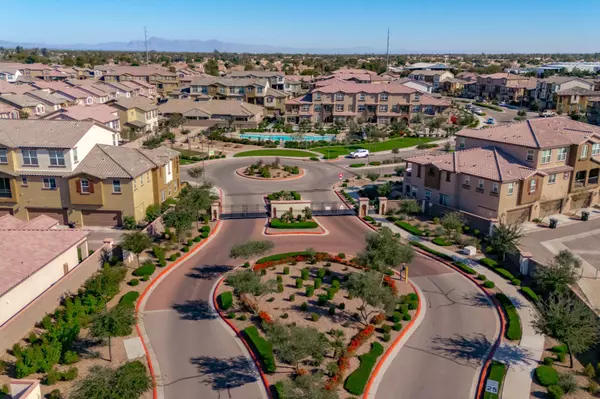

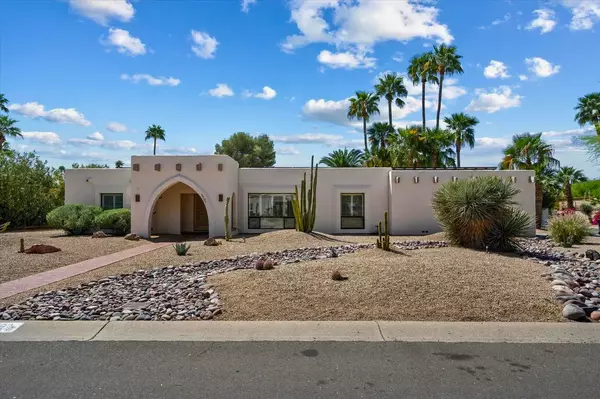

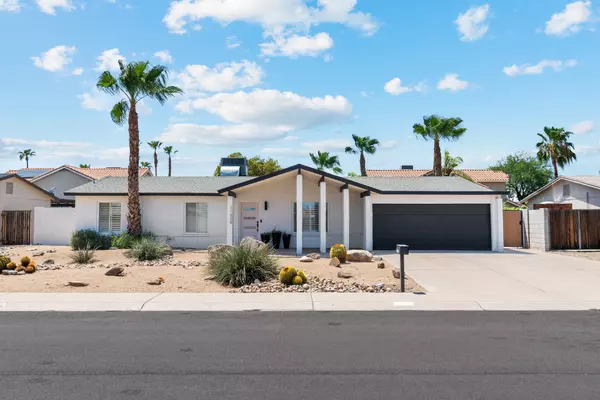

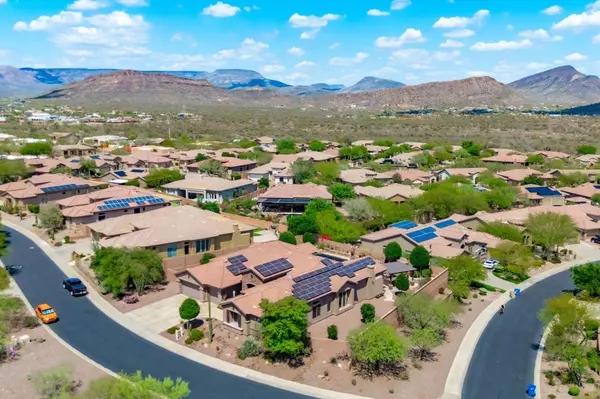
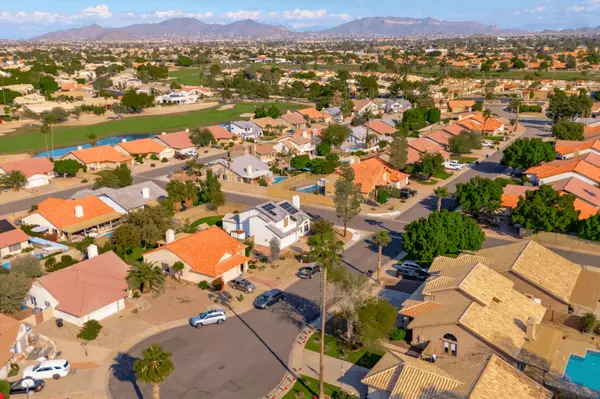



About the Author
Eric Ravenscroft is a Top 1% REALTOR® across North America and one of Arizona’s most trusted real estate strategists. With 15 years of experience spanning real estate, wealth management, and investment planning, he helps clients make smarter, financially grounded decisions, from new construction and relocations to STR investments, 1031 exchanges, and long-term portfolio strategy.
Eric’s expertise has earned him industry recognition, Elite status with Real Broker, and features in major publications including the Wall Street Journal, MarketWatch, MSN, and Morningstar. Clients across the Greater Phoenix Metro rely on his clarity, strategic insight, and results-driven guidance.
Ready to make a confident real estate move? Call or text Eric today.
